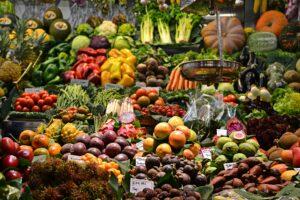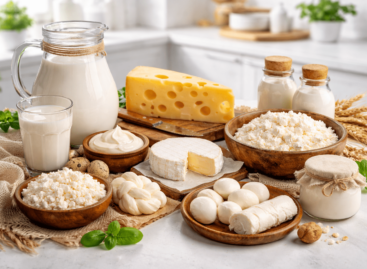Inflation rose again in June – rising fruit prices are pushing up prices
Annual inflation rose to 4.6 percent in June, compared to 4.4 percent in May, according to the latest data from the Central Statistical Office. The monthly price increase was 0.1 percent, with the increase in the price of food and especially seasonal products having the greatest impact on consumer prices. The increase in the price of fruit was caused by unfavorable weather, and the inflation indicators are also confirmed by data from price monitoring systems, the Index article points out.
 Fruits – including apples, pears, lemons and oranges – rose in price by between 4 and 9 percent in June. According to the Central Statistical Office, this product group accounts for nearly half of food inflation, so their price-pushing effect is significant. In May, the annual and monthly price increases of 4.5 percent and 0.6 percent were registered for cold foods, mainly due to fresh fruits. According to the Price Monitor, the prices of regulated foods decreased, but those of non-regulated foods increased by an average of 0.3 percent.
Fruits – including apples, pears, lemons and oranges – rose in price by between 4 and 9 percent in June. According to the Central Statistical Office, this product group accounts for nearly half of food inflation, so their price-pushing effect is significant. In May, the annual and monthly price increases of 4.5 percent and 0.6 percent were registered for cold foods, mainly due to fresh fruits. According to the Price Monitor, the prices of regulated foods decreased, but those of non-regulated foods increased by an average of 0.3 percent.
Although spring brought favorable price dynamics, the first persistent supply tensions appeared in the summer due to weather anomalies, affecting other seasonal products in addition to fruits. This trend is not unique to Hungary; similar price increases were also experienced in several EU member states.
According to the detailed inflation breakdown, food prices increased by 6.2 percent compared to June 2023. Eggs became more expensive by 26 percent, flour by 24.4 percent, cooking oil by 22.2 percent, coffee by 20.3 percent, chocolate by 19.6 percent, and fruit and vegetable juice by 14.1 percent. In contrast, the price of margarine decreased by 31.2 percent, dairy products by 7.2 percent, and pork by 2 percent. Household energy increased by 8.6 percent, including gas by 18.4 percent.
According to the Ministry of National Economy, the retail margin reduction introduced by the government in March has significantly contributed to containing prices: the affected food products have become cheaper by an average of 20 percent, and chemical and hygiene products by 26 percent. The ministry emphasized that the renewed increase in food inflation is primarily caused by climate risks and seasonal disturbances.
The government highlighted in a statement that as part of the fight against inflation, agreements have been concluded with the banking sector, insurance companies and pharmaceutical industry players. As a result, the prices of 44 prescription and non-prescription medicines have been reduced from July 1, and the voluntary price restriction will be in effect until mid-2026. In addition, a targeted food voucher support program has been launched for pensioners.
Related news
KSH: in the fourth quarter of last year, investment performance was 1.3 percent lower than a year earlier
🎧 Hallgasd a cikket: Lejátszás Szünet Folytatás Leállítás Nyelv: Auto…
Read more >Related news
MOHU: 5,200 return points are in operation, but 47 larger settlements still do not have RE points – public “enema” machines may be introduced
🎧 Hallgasd a cikket: Lejátszás Szünet Folytatás Leállítás Nyelv: Auto…
Read more >KSH: in the fourth quarter of last year, investment performance was 1.3 percent lower than a year earlier
🎧 Hallgasd a cikket: Lejátszás Szünet Folytatás Leállítás Nyelv: Auto…
Read more >






